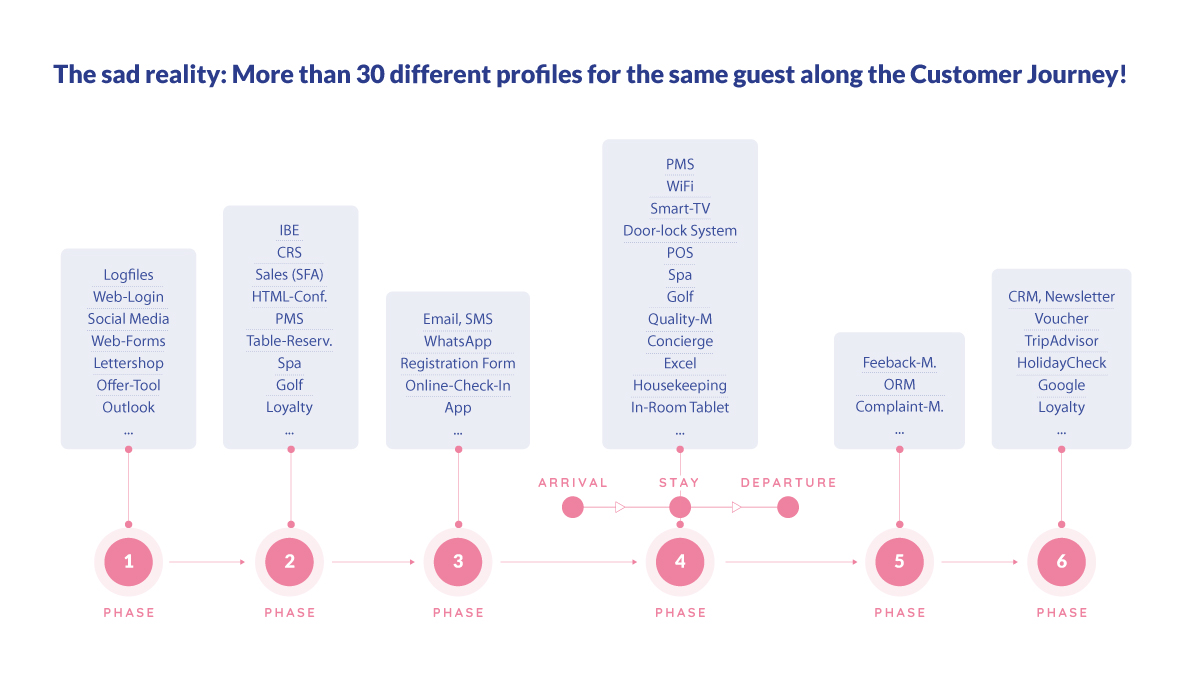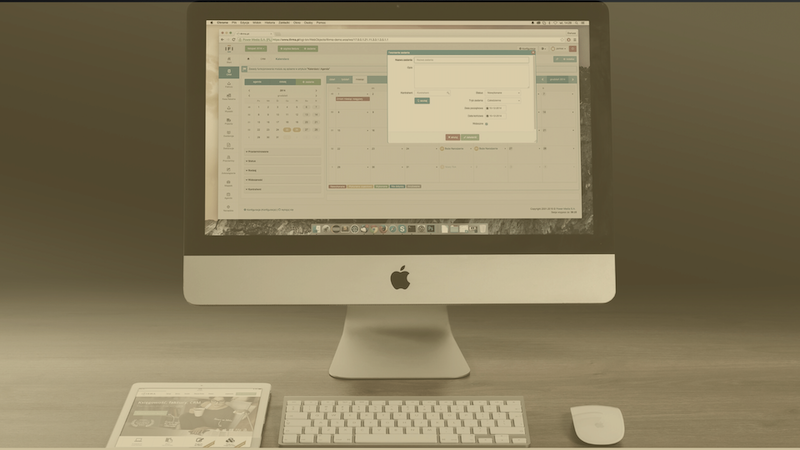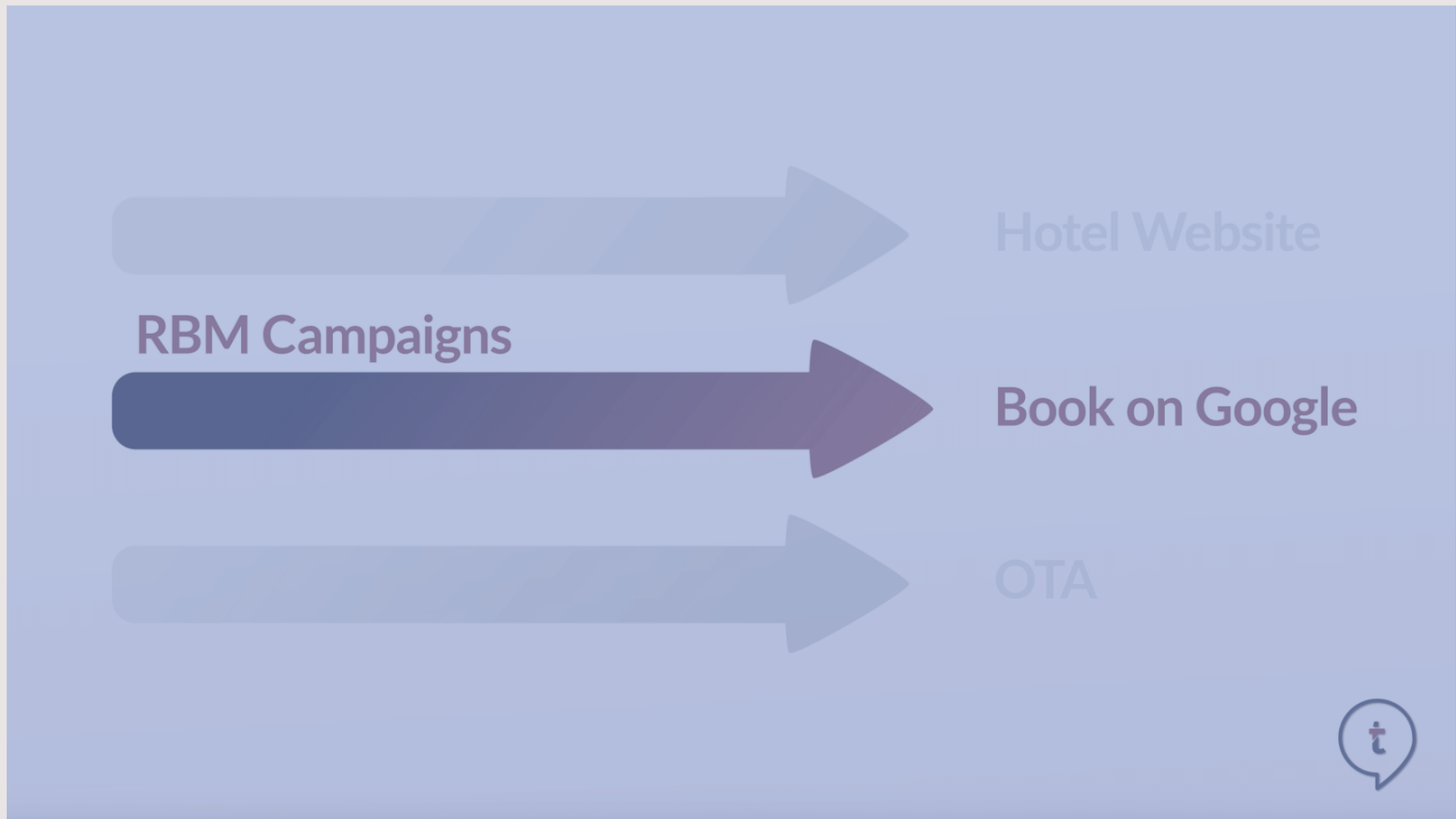Guest Loyalty in the Hospitality Industry
If hotels could fly: Leveraging data to drive guest loyalty
We all have our preferences when we travel or shop online. When booking flights, for example, we have several options to make our trip more enjoyable. Mid-week flight, aisle or window seat, extra legroom, special meal? It’s all at our fingertips. Even better is when an airline, a retailer or, as can happen nowadays, an entire smart city - already knows our habits, leveraging the data from our past visits to cater to us via our unique customer profile. This data allows the supplier (or city) to surprise and delight us as customers with rewards based on usage and customer longevity, better personalised service and a seamless experience from booking to buying.
What if we could tear a page out of the retail or air travel playbook to apply this same capability to hotels? How would that change the guest journey? While air travel has solved the reconciliation of disparate systems to achieve personalisation and interoperability, hospitality is still far from this, forcing guests to interface with multiple systems before, during and after their stays.
But forward-thinking hotel Chief Information Officers and industry technologists are considering mobile use to link guest preferences and behavioural information to their single guest profiles to help solve this problem.
Let’s see what this could look like and the inherent problems such an approach would solve.
Hotels and the revolving door of guest data
Today’s guests face an extremely complex ecosystem when it comes to their hotel stays. The airline industry placed a strategic bet many years ago to aggregate the data on its passengers in a centralised manner. Some of that is due to regulation, but business reasons for this big data approach go above and beyond any federal or international law. The data collected during air travel predicts future consumer buying behaviour and helps improve the overall experience for everyone - both travellers and staff. Hotels have been slow to adopt a similar strategy and seem to collect a lot of guest data, but it’s sitting in separate systems that don’t talk to each other and can’t be leveraged.
Why is this happening?
Hotels have taken a proprietary, inward-facing perspective. That requires guests, along with their personal data, to interact with multiple systems, including online booking/reservation systems, travel insurance providers, payment systems, hotel apps, Property Management Systems (PMS), guest loyalty apps, separate interfaces for booking a spa, food and beverage, business centres, in-room amenities, and more.
To exacerbate this problem, the data that is spread across these multiple systems not only can’t talk to partner systems; there’s no way to ensure its accuracy. It’s not uncommon to have numerous entries of the same guest in a hotel’s PMS system, for example, and even hotels within the same chain/brand can’t share guest data properly. For guests, it sometimes feels like hotels, even where they’ve stayed multiple times, don’t know them at all.
This situation doesn’t inspire guest loyalty.

Mobile: The silver bullet of guest profiles
Instead of guests dealing with 30 disconnected hospitality systems, what if hotels took a guest-centric approach (an outward vs. inward perspective) to create a seamless guest journey? That journey could organically drive guest loyalty because data could be aggregated, cleansed and leveraged to help drive guest behaviour through a unique guest profile. Could the silver bullet behind this unique guest profile be as simple as using what every guest most likely already has in their hands today? The answer could (and should) be found in mobile devices.
Guests, like other consumers, manage much of their lives via mobile devices. With a good Wi-Fi connection, guests can oversee most of the touchpoints of their trips, including those they have with hotels. Luckily, a unique guest profile can easily be applied to mobile, since every device has a unique identifier and mobile users sync up their devices on their own.
Instead of forcing guests to interact with hotels on their multiple, separate systems, this approach meets guests at their own central data hub. Hotels can “serve up” experiences, information and functionality to guests before, during and after their stays. In addition, having guests manage their own experiences via mobile lets them interact with hotel staff when they choose and helps promote the overall contactless stay that the industry is currently promoting.
Creating a user journey that drives loyalty
Let me share a non-travel-related example of what personalisation and seamless journeys can do to drive consumer spend and loyalty: Amazon.
Instead of driving a user to the websites or mobile apps of thousands of stores, Amazon brings all of its stores’ products to the user, and the user has a unique profile. This seems so natural and commonplace that we’ve forgotten how painful shopping used to be. Amazon makes it easy to find, order, pay for and ship goods in a way that users want. They have so much data on their users that they can recommend and predict what their customers will buy next. And now it’s the largest internet company by revenue in the world. Users are loyal to this service because it’s seamless, painless and Amazon does an excellent job of storing all the information needed for users to spend money easily.
Other online retailers, including travel booking platforms, use similar technology to enhance their customer experience by reflecting their preferences, demographics and previous buying patterns. It’s also no accident that since online shopping became a reality, brick and mortar retailers across every sector have adopted features of the online experience to encourage their customers to keep visiting them.
How can we make hotel stays as easy as using Amazon? If hotels had that same mindset about their guests, how easy would it be if everything could be sent to their unique, mobile guest profile and managed from there? Instead, guests are currently sent to different online places to enter their information, make them figure out how to navigate those applications, and manage usernames and passwords for each of those experiences.
Guest Wi-Fi and authentication
The mobile world is already operating on the basis of knowing who and where someone is. Let’s imagine that our travelling guests are leaving the plane and get a text welcoming them to the local cellular network, with offers of roaming packages, local attractions, etc.
When travellers (and this can be as close as the local coffee shop) are authenticated and connected to the local Wi-Fi, they convert from being just a regular patron to becoming a record in the coffee shop’s database or Customer Relationship Management Software (CRM). Then when a customer returns and connects to the retailer’s Wi-Fi, he or she can receive a “welcome back” message that’s personalised along with a coupon to get a free pastry with their next cup of coffee. That is guest loyalty in its most basic form.
Wi-Fi authentication technologies such as Passpoint (Hotspot 2.0) can be leveraged to help make this guest journey a seamless one. Hotels (and other venues) can then engage with guests on their terms, not the network operator’s, as in the cellular experience. Once authenticated and connected, guests can complete mobile check-ins, open their doors with digital keys, manage the in-room amenities - including casting their own content on the TVs - and order food, spa appointments and more.

How to make this the killer app for hotels
I spoke to the owner of a hotel CRM solution, which is also the basis for central data management (CDM), data cleansing and more. He extracts data from multiple sources, bringing it all together into his single system to provide an aggregated big data view - around a single and central guest profile. Suppose you think about Wi-Fi data as one such source. In that case, he can gather other behavioural data, define the segments, enable guest categorisation, check-in, support welcome messaging and other digital services.
On the Wi-Fi authentication side, imagine how much data and services could be provided if everyone could be tracked by name, mobile phone and email address. There could be real guest triage with this approach instead of having everyone grouped together into a homogenous lump. The example he gave is if you have special VIP guests at a conference, most users are jumping onto the guest Wi-Fi without doing personal authentication. Without that data, there’s no way to recognise them as VIP and market to them as such. With this data, well, that can be an inflection point for guest loyalty.
How we get there from here
Nirvana would be hotels getting to the same stage based on guest data made possible by a joined-up, aggregated profile, like the air industry.
‘Mobile first’ is how we get there, and Wi-Fi authentication and connectivity are the ticket in. Let’s start looking at this from the guest point of view and not our proprietary way of thinking.
About the Author
Hauke Lenthe, Managing Director, EMEA & APAC at Nomadix

-
Hauke Lenthe is the Managing Director, EMEA & APAC of Nomadix, Inc., the leader in hotel internet services and guest technologies. He brings more than 25 years of hospitality and international hotel technology experience, spanning from managed internet services to operational PMS and guest-facing software.
Connect with Hauke on Linkedin.
Also, find these complementary content pieces on Guest Loyalty in Hospitality




 Free download
Free download

![V03: The History of Hotel & Travel Technology | [Updated] Infographic](https://www.techtalk.travel/storage/app/uploads/public/63f/e6f/ec8/63fe6fec80447817849943.jpg)



Create an account to access the content.
Get access to Articles, Video's, Podcasts, Think Tanks, Infographics and more.
Click “Sign In” to accept our
Terms of Service Privacy Policy